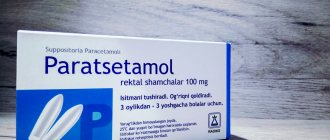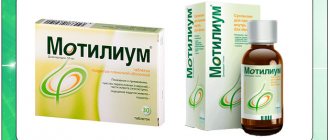Description of the drug Polysorb
Polysorb belongs to the group of sorbents that are used to neutralize harmful substances in the human body. It is based on a colloidal form of silicon dioxide, a natural mineral with a soft structure but a high degree of strength. In the preparation it has the form of a fine white powder without a distinct odor or taste.
Polysorb during pregnancy may be required in a number of cases. It absorbs well many toxic substances present in solid or gaseous states. A plastic bottle containing 12, 25 or 50 grams of the drug is offered for use. A liquid suspension is prepared from it immediately before use. For convenience, patients are offered practical sachets of 3 grams of suspension, which are intended for use on a trip or as part of a camp first aid kit.
How to replace the drug during pregnancy
If Polysorb MP causes side effects, another sorbent may be selected. It has no complete analogues for the active substance, but there are remedies that will help cope with the symptoms of toxicosis, allergies or gastrointestinal disorders.
Table: drugs that can replace Polysorb MP
| Name | Release form | Active substance | Contraindications | Use during pregnancy |
| Activated carbon | pills | Activated carbon |
| use during pregnancy is possible subject to contraindications |
| Smecta | powder for preparing suspension | dioctahedral smectite |
| |
| Enterosgel | pasty mass | polymethylsiloxane polyhydrate |
|
Photo gallery: sorbents that can be used during pregnancy
Indications for prescribing activated carbon are heartburn, flatulence, toxicosis
During pregnancy, Smecta can be prescribed to relieve symptoms of toxicosis and normalize digestion
Enterosgel is an enterosorbent prescribed for severe toxicosis and fetoplacental insufficiency
Operating principle of Polysorb
The absorbent properties of silicon dioxide are based on the ability of the mineral to absorb huge amounts of liquid substances and gases. At the same time, it does not threaten lactobacilli, beneficial substances and compounds. Its absorption volume reaches at least 300 mg/g, which is 3 times its own weight. At the same time, the active substance in Polysorb does not react with acids, which are present in large quantities in the human stomach and intestinal tract.
Sorbent during pregnancy is recommended if it is necessary to get rid of the following types of harmful substances:
- radionuclides;
- pesticides;
- organic poisons;
- toxins;
- breakdown products of bacteria and viruses;
- some heavy metals;
- allergens;
- medications;
- bilirubin, urea, cholesterol.
All of these substances are concentrated in the intestines and absorbed through the epithelium into the blood. This threatens the expectant mother not only with general inflammation or serious illness. The main danger threatens the developing embryo, which receives poisons through the placenta. This entails disruption of the growth and formation of internal organs, and negatively affects the functioning of the nervous system.
Polysorb is a unique product that works in two main directions:
- Sorbent - reacts with poisons and quickly removes them out along with feces.
- Detoxifying – protects internal organs and tissues from damage by toxic compounds.
The drug acts only inside the intestines and does not penetrate the epithelium and connective tissues, or breast milk. Therefore, Polysorb is safe for the patient and baby and can be used during lactation. It is considered more of an auxiliary part of therapy, serving to relieve symptoms. It must be combined with antibiotics, antiseptic compounds and antimicrobial agents.
How is it derived?
Slowly moving through the intestinal tract, the powdered mash, like a sponge, gradually pulls out and takes away all unnecessary cell waste, toxins, and pathogenic microorganisms.
As a result, the fusion of this substance (saturated with neutralized toxic fractions) with processed food is formed into feces, which are naturally excreted through defecation.
There is no need to worry about the danger of silicon accumulation in the body during pregnancy; Polysorb is not deposited in the tissues and on the walls of the gastrointestinal tract.
Indications for use of Polysorb during pregnancy
Polysorb for pregnant women is a drug that must be kept in your home medicine cabinet throughout the entire period of pregnancy. It solves many problems related to the health of the expectant mother and becomes a means of preventing severe poisoning. Most often it is recommended to use it when the following situations arise:
- acute intestinal infection;
- mild poisoning when eating foods that are difficult for the stomach (mushrooms, nuts, baked goods);
- dysbacteriosis;
- intoxication of various types;
- blood sepsis;
- the presence of external and internal fistulas, purulent foci;
- allergies to foods or medications;
- poisoning during breastfeeding;
- hepatitis.
Polysorb is especially recommended for pregnant women who work in hazardous industries, live in cities with high levels of air pollution, and come into contact with chemicals or paint products. This helps reduce the concentration of volatile compounds that negatively affect the body of a woman and baby. This is a kind of prevention of complications associated with underdevelopment of the nervous or cardiovascular system of the embryo. If necessary, Polysorb is taken even in case of alcohol poisoning, to correct excess weight.
Features of using Polysorb for allergies
A few weeks after conception, hormonal activity begins in a woman’s body, affecting almost all organs and systems. During this period, all types of allergies worsen: instability of hormones leads to an imbalance of all systems. A negative reaction occurs upon contact with any substances that were not observed before pregnancy:
- household or construction dust;
- animal hair;
- chicken protein;
- pollen;
- antibiotics.
Allergies remind you of themselves with unpleasant symptoms: skin itching, rashes, swelling of the respiratory system. This provokes sleep disturbances, dizziness due to severe nasal congestion, and insufficient oxygen supply to the blood. This is dangerous for the fetus due to the development of hypoxia and severe cerebrovascular accidents. Therefore, pregnant women can take Polysorb from the first day of allergies.
When it enters the intestines, the drug absorbs toxins and allergens, stopping their movement and effect on internal organs. This reduces the manifestations of the disease, saves from discomfort and painful itching. But it should be remembered that the medicine only complements the therapy. Taking Polysorb should be combined with a strict diet, special antihistamines, and skin treatment.
How to take Polysorb during pregnancy if a woman is experiencing an allergy depends on the stage of development of the disease. Most drugs for the treatment of this disease penetrate the placental barrier and are therefore prohibited in the early stages. The sorbent should be used according to the following scheme:
- In case of an acute attack of hay fever or after an insect bite that threatens swelling, take 1 dose of Polysorb every 60 minutes. There should be at least 5 such doses. After a positive effect, the dosage is reduced to 3-4 doses per day for 3 days.
- For chronic allergies, it is recommended to drink the drug 2 times a day (morning and evening). The maximum allowed period of treatment should not exceed 20–30 days.
If you have a negative reaction to pollen, urticaria or eosinophilia, Polysorb can be taken before going outside during breastfeeding or pregnancy. This will help reduce toxicity upon contact with allergens, making it easier to endure seasonal exacerbations.
Allergies during pregnancy
Bearing and giving birth to a child is a complex process that significantly weakens the female body, so during pregnancy allergic reactions often appear to substances that the body previously perceived normally. Flowers, some vegetables and fruits, many cosmetics, and household chemicals can become enemies No. 1 for the expectant mother, and the issue cannot be resolved by simply excluding these substances. Unfortunately, antihistamines are prescribed with caution during pregnancy, since the exact effect of drugs on fetal development and the course of pregnancy is unpredictable.
The use of sorbents in the fight against allergies in pregnant women has shown to be effective - skin reactions, rhinitis and dry cough caused by allergens are significantly reduced from the first day of treatment. And, although Polysorb MP does not affect the strength of the immune response, it helps by removing from the body both allergen particles and toxins formed in the body’s attempts to fight this allergen.
Treatment of toxicosis with Polysorb
Polysorb for toxicosis is one of the most prescribed drugs by gynecologists. This specific condition occurs at different stages of pregnancy and differs in symptoms and degree of toxicity:
- In the first trimester, exacerbation is associated with a sharp increase in the amount of hormones that affect the functioning of the digestive, nervous and circulatory systems. In the first weeks, the female body may perceive them as foreign compounds and react with nausea, vomiting, and muscle weakness. The symptoms resemble mild intoxication after poisoning with unsuitable foods.
- At a later stage, the re-growth of hormones responsible for preparing for childbirth begins. In addition, the cause of toxicosis is the increase in blood and lymph fluid volume, which is natural for the third trimester. In severe cases, not only the fetus suffers, but also the woman’s urinary system, kidneys, heart and brain.
In this situation, Polysorb against toxicosis during pregnancy becomes a salvation for the patient. It should be noted that the remedy does not help solve the problem, does not affect the level of hormones and the very cause of the unpleasant symptoms. Its task is to reduce the excess of decomposition products, reduce the concentration of dangerous amino acids to a minimum level.
Polysorb during early pregnancy is used only as prescribed by a doctor. It is not used for mild cases, which can be eliminated by choosing a diet and walking in the fresh air. The medicine must be used during an exacerbation, if vomiting interferes with eating, working and resting, and blood pressure increases. The drug can be taken 2-3 times a day an hour before meals. Treatment lasts no more than 2 weeks.
Toxicosis in recent months is dangerous due to the heavy load on a woman’s kidneys. They stop fully removing waste products, which increases the level of urea and protein in the blood. The patient feels weakness, drowsiness, decreased appetite and performance. Internal edema gradually blocks the supply of oxygen and nutrients to the child, which threatens death. In especially difficult situations, gestosis develops, requiring immediate delivery to save the life of the woman in labor.
Polysorb during late pregnancy is prescribed only after urine and blood tests. With the help of a whole group of drugs, doctors try to normalize blood pressure, improve tissue circulation and strengthen blood vessels. The adsorbent is responsible for removing dangerous compounds, so it is used at the first sign of protein in the urine.
To improve your condition, Polysorb in the form of a suspension should be drunk 3 times a day with an interval of 3–4 hours. At the same time, you must wait about an hour between any snack and medicine. The dosage is selected strictly according to the patient’s weight and is adjusted every week after regular control tests.
Polysorb for poisoning
It is difficult to overestimate the danger of poisoning during pregnancy at any stage. Intoxication causes a sharp increase in the level of toxic substances that easily penetrate the placenta and can cause irreparable damage to the health of the fetus. The main complications in this situation:
- placental abruption;
- uterine bleeding;
- developmental delays;
- risk of miscarriage;
- fading of pregnancy.
Whether Polysorb can be used during pregnancy depends on complications. In case of mild poisoning, it is enough to take activated carbon, correct the condition of the intestines with light meals and a drinking regime. It is necessary to proceed to more serious treatment if the following symptoms are detected:
- watery diarrhea;
- abdominal pain;
- bloating;
- heat;
- headache.
To stop diarrhea, you should take Polysorb after colon lavage. On the first day, the dosage is up to 6 doses every 1–1.5 hours. On the second day, when improvements appear, the number of uses is reduced to 4 times. Treatment lasts from 3 to 5 days, combined with a diet under the constant supervision of a doctor.
How to prepare and use Polysorb
The medicine in powder form has no taste. Before use, Polysorb should be diluted in clean boiled water at room temperature, stir well with a spoon until the lumps disappear. When preparing a medicinal suspension, the following proportion is observed: 1 sachet (tablespoon) per 0.25 liter of liquid. If a pregnant woman suffers from loss of vitamins due to toxicosis, you can use fresh juice.
The dosage features of Polysorb depend on the disease:
- In case of exacerbation of hepatitis, it is used 2 times a day for a week to remove increased bilirubin.
- Renal failure - a daily dose of 7-8 g is divided into 2-3 doses. Courses lasting 20 days are combined with breaks of 10–14 days.
- Toxic infection - a single dose of 3 g is taken 4 times a day for a week.
- If you are worried about heartburn, 1-2 tsp of the drug is enough to prepare a suspension.
When using, it is necessary to focus on the patient’s weight. Instructions for use of Polysorb for pregnant women suggest that a woman weighing up to 50 kg needs only 1 tbsp per dose. If the indicators are exceeded 50-60 kg per one part of water, take 2 tbsp. l powder. You should drink additional water to speed up the elimination of the drug and intestinal motility. In case of acute intoxication or Quincke's edema, the medicine is administered in liquid form through a flexible probe.
Other uses of this drug
While carrying a child, women begin to actively take care of their own health. They also pay more attention to appearance and take advantage of the free time. And the active sorbent will also help them with this. It is used as a substitute for tooth powder, diluted to a paste-like consistency before use. Afterwards, rinse your mouth thoroughly. And since the product is intended for oral administration, there is no need to be afraid of what will happen if it is accidentally swallowed.
Polysorb perfectly cleanses hair, which after this treatment becomes silky, very clean, and easily separated. True, this option is not the best if your strands are already very dry. Polysorb is also used to get rid of pimples and acne on the face. However, it is most useful, of course, when used directly.
Pros and cons of treatment with Polysorb
Numerous reviews confirm the effectiveness of Polysorb in the treatment of various conditions during pregnancy. The drug has many advantages:
- low cost;
- unhindered opportunity to purchase;
- high degree of absorption;
- easy to use at home.
Among the disadvantages of treatment with Polysorb is that with long-term use, deterioration of motor skills occurs, and it becomes difficult to remove feces due to changes in water metabolism. Therefore, breaks and additional intake of the bifidocomplex are necessary.
Contraindications
In most cases, doctors have no doubt whether Polysorb can be taken during pregnancy. It is safe for the fetus, but can wash away beneficial substances and vitamins. As a result, side effects occur:
- indigestion;
- anemia;
- decreased calcium levels;
- drop in immune defense.
Despite many positive qualities, Polysorb has a number of contraindications: silicon intolerance, internal bleeding in the intestines, atony, open gastric ulcer.
When is it contraindicated?
In case of an overdose of the drug, there is a risk of constipation. In this case, the woman is prescribed safe rectal suppositories to stimulate bowel movements. Hypovitaminosis and dehydration can also occur. In such cases, the pregnant woman’s condition should be monitored by a doctor, taking the necessary measures to restore normal condition.
The medicine has some contraindications:
- peptic ulcer of the stomach and duodenum;
- exacerbation of gastrointestinal diseases;
- intolerance to components in the composition;
- decreased intestinal tone, the presence of atonic constipation;
- internal bleeding.
Side effects
The medicine is well tolerated by women during pregnancy, but there is a risk of some side effects. They are observed mainly from the digestive organs. Constipation occurs most often, especially with prolonged use. The drug may cause an allergic reaction. Problems with the functioning of the stomach are less common.











